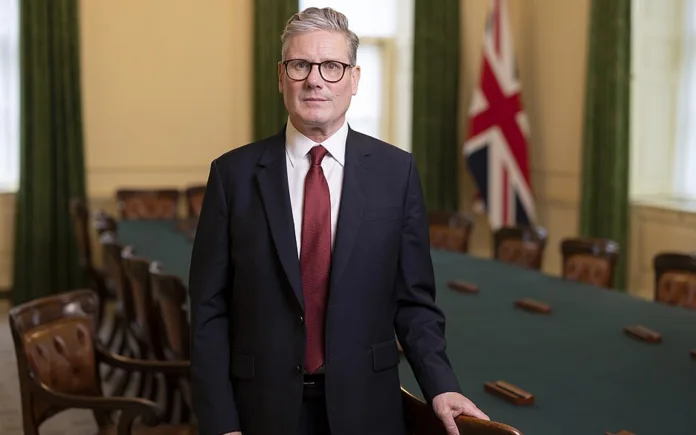Labour leader’s plan to raise council tax contrasts with his own lower rates, highlighting inequality in the system
Sir Keir Starmer, leader of the Labour Party, has come under fire after announcing a £1.8 billion increase in council tax, just as new details reveal that he benefits from paying some of the lowest council tax rates in the country. The move, which aims to bolster public finances and fund essential local government services, has sparked criticism due to the stark contrast between Starmer’s relatively low tax rates and the higher burden facing ordinary families.
The announcement follows increasing pressure on Labour to find new revenue streams, particularly after the government’s recent fiscal policies. However, Starmer’s own Westminster property sits within one of the regions with below-average council tax rates. In comparison, families in areas like Durham, where many low-income households reside, are facing substantially higher rates of council tax, making the tax hike feel especially painful for those in less affluent regions.
The planned £1.8 billion increase in council tax is expected to affect millions of households across the country, with rates climbing in an effort to fund local services such as waste management, public safety, and social care. The move is part of Labour’s broader strategy to address the financial strain on local councils and maintain services at a time when budgets are under pressure.
Embed from Getty ImagesRachel Reeves, the Shadow Chancellor, has defended the proposal, arguing that the rise is necessary to ensure the sustainability of local government finances. However, critics argue that the Labour Party is out of touch with the struggles faced by families across the country. Commentators point out the irony that Starmer and the Chancellor enjoy some of the lowest council tax bills in the UK, raising questions about fairness and the impact of the policy on working-class families.
The revelation has sparked a wider debate about the fairness of the UK’s council tax system, with many arguing that those in more affluent areas should contribute more, rather than imposing uniform increases on households already facing financial difficulties. Some are calling for more progressive taxation systems that take into account the disparities in wealth and income across the country.
Sir Keir Starmer faces growing scrutiny over this apparent contradiction between his policies and his own personal tax benefits, with critics accusing him of being detached from the reality of life for ordinary Britons. As the debate over council tax intensifies, many are questioning whether this move will resonate with voters who are already disillusioned with the political establishment.
THE GUARDIAN
Labour has confirmed that council tax increases will remain capped at 5% for the next year, potentially adding £100 to the average family’s bills. The decision to keep the cap in place comes despite inflation levels currently sitting at just 1.7%, almost three times lower than the proposed rise. This increase would affect households, with the average band D council tax bill rising from £2,171 to £2,277 for the 2024-25 period. For higher band H households, the rise would be even greater, with bills increasing by £217.
Prime Minister Keir Starmer had avoided confirming the cap during Prime Minister’s Questions, but later his press secretary stated that the threshold for council tax increases would remain unchanged. The government’s decision to maintain the cap follows growing concerns over funding for local councils, many of which are struggling financially. While the Conservatives argue that the funding allocated for local government is insufficient to cover the increased costs, Starmer blamed the Tories for leaving councils in a “catastrophic state.”
Recent surveys indicate that many councils are at risk of financial collapse without emergency support. Given these financial pressures, it is likely that the 5% council tax cap will persist, potentially straining household budgets further as local authorities seek additional funding to cope with the growing demands for public services.
THE TELEGRAPH
Matthew Pennycook, Minister for Local Government, has hinted at a potential shake-up of council tax that could impact owners of larger properties. Speaking on 14 November 2024, he suggested that changes to council tax bands might be considered as part of the upcoming local government finance settlement. This could involve a revaluation of properties, potentially leading to higher taxes for those with extended or larger homes.
While Pennycook did not commit to a full-scale revaluation, he refused to rule out the possibility, acknowledging that the issue of tax bands would be part of the broader discussion. This has raised concerns among homeowners, particularly in areas with higher property values, such as London. A revaluation could lead to significant increases in council tax for those whose homes have seen substantial appreciation or extensions.
The potential reform is part of ongoing discussions about funding for local governments, with some ministers suggesting that adjustments to property tax bands could help address financial pressures on local councils. However, critics argue that such a move could disproportionately impact homeowners in high-value areas, adding to the financial strain on families already dealing with inflationary pressures.
